Noi duri (English title: Tough Guys) (1960)
L'Associazione Antonio De Curtis in arte Totò: "Fred Bombardone [Fred Buscaglione] is an FBI agent who is responsible for infiltrating, along with some of his men, in the nightclub of a drug trafficker known as the Algerian [Totò]."
Shorty before the film was due to be released, Buscaglione died in Rome in a car accident.
Signori si nasce (English title: Gentlemen Are Born) (1960)
IMDb User JAP_EMAIL:
This is indisputably a masterpiece. . . The main theme recalls that of the famous Poem by Aesop, The Ant and The Cricket: Two brothers live opposite lives, one being an extreme economizer and sober family man (Peppino/Pio), while the other just a big spender and pleasure-seeker (Totò/Zazà). The latter also boasts about a supposed nobleness whenever creditors complain about his debts and often he gets away with it this way. With his greed for money and sex, Zazà gets accidentally involved in the production of a stage revue; not having money of his own he tries to involve his rich brother into the business, just to please a young dancing girl he's fond of. The plot gets all the more entangled as new characters get into the picture all along, because of various misunderstandings. . . Being a comedy the muddle will eventually untangle, and all the characters will end up happy ever after.
Totò, Fabrizi e i giovani d'oggi (English title: Toto, Fabrizi and the Young People Today) (1960)
IMDb User Baldinotto da Pistoia: "Carlo is in love with Gabriella and he decides to marry her. She agrees but some problems begin when their parents meet. Giuseppe D'Amore [Aldo Fabrizi] and Antonio Cocuzza [Totò] have an instant dislike for each other and begin fighting over everything."
Letto a tre piazze (English title: The King-sized Bed) (1960)
Amalia (Nadia Grey) presumed that her husband Antonio (Totò) was dead after he failed to return from the Russian front during World War II. She eventually remarried and found happiness with her new husband (Peppino De Filippo). But now, after his long absence, Antonio has found his way home and expects Amalia to resume their marital relations.
Risate di gioia (English title: The Passionate Thief) (1960)
This is a film that I really enjoyed. Totò's performance is sensitive, genuine and funny.
IMDb User Miriam Kramer:
On New Year's Eve, an insecure, struggling actress (Anna Magnani) has nothing to do. When a colleague invites her to a New Year's party, she jumps at the opportunity. Accidentally she runs into an old acting acquaintance (Totò), who is helping a professional pickpocket (Ben Gazzara) steal from people during the hustle-bustle of New Year's Eve festivities. During the course of the evening, they have numerous crazy, humorous adventures all over Rome at different parties, restaurants, and even the Trevi fountain. Magnani's character (Tortorella) falls for Gazzara's character (Lello) without knowing what he's up to, while Totò tries to placate them both.AllMovie critic Hal Erickson wrote:
This fast-paced crime comedy stars Anna Magnani as the fly in the ointment for a pair of disreputable types. Pickpockets Toto and Ben Gazzara don't want Magnani around while they ply their trade, but she manages to foul up their plans by falling in love with their "pigeon," American tourist Fred Clark. Gazzara briefly rids himself of Magnani by pinning a robbery rap on her. Upon her release from jail, she is reunited with Toto, who has loved her all along. Since it is established early on that Magnani is a movie extra and Toto an out-of-work actor, [scriptwriter] Risate di Giola gets away with a few jibes at the Italian film industry.
Chi si ferma è perduto (English title: Who Hesitates Is Lost) (1960)
Two clerks, Antonio Guardalavecchia (Totò) and Giuseppe Colabona (Peppino De Filippo), employ a series of underhanded tactics against each other to acquire a promotion from their new boss. This very funny film was directed by Sergio Corbucci, who later became well known for his ultraviolent spaghetti westerns and Bud Spencer and Terence Hill action comedies.
Totò, Peppino e. . . la dolce vita (1961)
Antonio Barbacane (Totò) is sent by a rich grandfather to Rome to bribe politicians to favor his land interests in a highway bill. But Antonio is instantly distracted by Rome's night life and manages to draw his moralistic cousin, Peppino (Peppino De Filippo), into his endless debauchery.
Sua Eccellenza si fermò a mangiare (English title: The So-Called Dr Biagio Tanzarella) (1961)
A thief (Totò) gains the confidence of a wealthy family by pretending to be Mussolini's personal physician and succeeds in his ultimate plot to steal their gold cutlery.
Totòtruffa '62 (1961)
Antonio (Totò), a poor man, devises various cons to pay for his daughter to study dance at a prestigious boarding school.
I due marescialli (English title: The Two Marshals) (1961)
Totò contro Maciste (English title: Toto vs. Maciste) (1962)
Wikipedia:
Totokamen is an entertainer and an illusionist who performs in various Egyptian nightclubs assisted by his manager, Tarantenkamen. Taking advantage of cheesy tricks, Totokamen pretends to be the son of the god Amun. The Pharaoh Ramses is meanwhile facing the betrayal of Maciste, who has decided to unleash a revolt against him, along with the Assyrians. To cope the emergency, a minister who had witnessed the spectacle of Totokamen is convinced that the man is really a demigod and that he is the right man to face Maciste.
Totò diabolicus (1962)
One by one, the heirs of a fortune (all played by Totò) are murdered by a mysterious killer who calls himself Diabolicus.
Lo smemorato di Collegno (1962)
The film is based on a true story. When a newspaper publishes the photo of an amnesia victim, the photo attracts the attention of several people, each of whom claims the man is a different person.
Totò e Peppino divisi a Berlino (English title: Toto and Peppino Divided in Berlin) (1962)
Shen summarized the plot of Totò e Peppino divisi a Berlino as follows:
Toto and Peppino De Filippo are a pair of Neapolitan clothes peddlers who emigrate to Berlin, only to find themselves ensnared in cold war politics. Bribed by neo-Nazis, Toto poses as an Italian general being tried for war crimes, but after Peppino blows his cover the two wind up fleeing the Americans, the Germans, and the Soviets combined.
Totò di notte (English title: Toto's First Night) (1962)
Street musicians Ninì (Totò) and Mimi (Erminio Macario) uses inheritance money from Mimi's grandmother to travel abroad. The producers had so much unused footage from this film that they put together a second film, Totòsexy.
I due colonnelli (English title: The Two Colonels) (1962)
During the World War II, the Italians and the English alternately occupy a village located between the Albanian and Grecian borders. The two colonels, the Italian Di Maggio (Totò) and the English Henderson (Walter Pidgeon), become good friends. When the German army orders Di Maggio to bomb the village and wipe out all of its occupants, Di Maggio refuses and is sentenced to death.
Totò contro i quattro (English title: Toto vs. the Four) (1963)
Chief Constable Saracino (Totò) is having a busy day. He wakes up to find his car has been stolen, a man claims a parrot tipped him off that his wife and her lover plan to murder him, and a man insists he can lead police to a serial killer but it turns out the serial killer is an actor playing a serial killer in a movie.
Il monaco di Monza (English title: The Monk of Monza) (1963)
An unemployed cobbler, Pasquale (Totò), poses as a monk to solicit funds from a beautiful widowed marquise, Fiorenza (Lisa Gastoni). To his surprise, Fiorenza implores him to prevent her forced marriage to the sinister Don Egidio (Nino Taranto).
Totò e Cleopatra (English title: Toto and Cleopatra) (1963)
Mark Antony's lookalike brother, Totònno (Totò), takes a break as slave trader to cuddle up with Cleopatra (Magali Noël).
Le motorizzate (1963) (segment "Il Vigile Ignoto")
A swindler (Totò) disguises as a traffic cop to collect high fines from unsuspecting drivers. His fines prove to be an effective deterrent to traffic violations. The mayor is ecstatic to see an end to reckless driving on the local roads.
Totòsexy (English title: Sexy Toto) (1963)
Gli onorevoli (English title: The Honorable) (1963)
Il comandante (English title: The Commandant) (1963)
A retired general, Antonio Cavalli (Totò), has trouble adjusting to civilian life and becomes a nuisance to his family. The comedian repeats an train track gag he performed years earlier in Animali pazzi (1939).
Le belle famiglie (English title: Beautiful Families) (1964) (segment "Amare è un po' morire")
Che fine ha fatto Totò baby? (English title: What Ever Happened to Baby Toto?) (1964)
Totò is at his most deranged in Che fine ha fatto Totò baby?. The film, a spoof of What Ever Happened to Baby Jane? (1962), has Totò go on a murder spree after unknowingly gathering up marijuana from a garden and including an abundant amount of the psychoactive plant in his dinner salad.
What Ever Happened to Baby Jane? (1962)
Totò d'Arabia (English title: Toto of Arabia) (1965)
Totò becomes a secret agent.
Gli amanti latini (English title: Latin Lovers) (1965) (segment "Amore e morte")
Rita, la figlia americana (English title: Rita the American Girl) (1965)
Professor Serafino Benvenuti (Totò), an ardent lover of classical music, is distressed that his adopted daughter Rita (Rita Pavone) wants to become a pop singer.
Uccellacci e Uccellini (English title: The Hawks and the Sparrows) (1966)
A pair of drifters trek through Rome with a crow that spouts Marxist views.
Operazione San Gennaro (English title: Treasure of San Gennaro) (1966)
Le streghe (English title: The Witches) (1967) (segment "La terra vista dalla luna")
This anthology film features Totò in a surreal third segment, "The Earth Seen from the Moon." Here is the summary provided by Wikipedia:
This comic episode, directed by [Pier Paolo] Pasolini, tells the story of a red-headed father and son, Ciancicato and Baciu Miao (Totò and Ninetto Davoli). Ciancicato has just lost his wife and wants to marry a new wife. Ciancicato finds a deaf girl [Silvana Mangano] among the shacks on the outskirts of Rome and makes her his bride. To buy a better house nearby, he concocts a plan for her to threaten to commit suicide (distraught by her sick children) by jumping from the Coliseum, and take a collection to save her, but she slips on a banana peel and falls, and is buried next to his former wife.This is not the entire story. Ciancicato and Baciu return home to find the ghost of the deaf girl waiting for them. At first, they are horrified. But then they see that she hasn't changed and they happily welcome her back. The story ends with a title card that reads, "Moral: Whether you are dead or alive, it's all the same."
Il padre di famiglia (English title: The Head of the Family) (1967)
Capriccio all'italiana (English title: Caprice Italian Style) (1968)
Additional notes
Here are a few photos and clips to showcase the other Italian film comedians prominent during Totò's time.
Alberto Sordi
Eduardo De Filippo and Peppino De Filippo in Quei due (English title: Those Two) (1935)
Plot: A pair of struggling actors create a magic act to perform in provincial theaters. The men take a liking to a beautiful young woman they meet. When they learn she's out of work, they write a part for her in their act.
Peppino De Filippo in I due compari (1955)
Aldo Fabrizi
Aldo Fabrizi in Hanno rubato un tram (English title: They Stole a Tram) (1954)
Plot: A tram driver, Cesare Mancini (Fabrizi), is suspended for three months after getting into a fight with rowdy football fans who boarded his tram after a game. He tries to keep his suspension a secret from his family, but his family finds out and becomes upset with him. Feeling abandoned, he wanders through the city for much of the night and happens to wind up at the tram depot. On a sudden impulse, he steals a tram and rides it at full speed through the city. He stops to take on board a few passengers, including a drunkard, two prostitutes, an elderly couple, and a street musician. The musician plays his accordion while the others sing and dance. Mancini is arrested and put on trial.
The film was co-directed by Fabrizi and Sergio Leone.
Aldo Fabrizi in I due compari (English title: The Accomplices) (1955)
Plot: A father pays his daughter's tuition to a prestigious boarding school by peddling fake fountain pens in the market squares of Rome. The daughter, Giulietta (Giulia Rubini), believes that her father is a successful businessman, but she finds out the truth when she sees her father being arrested. She is so humiliated that she breaks off her engagement to Enrico Carletti (Leonardo Botta), the son of a rich industrialist. It takes Enrico's father (Carlo Ninchi), who knows that Enrico and Giulietta truly love each other, to get the couple back together.
Aldo Fabrizi in Signori, in carrozza! (English title: Rome-Paris-Rome) (1951)
IMDb User Salvatore Santangelo: "Vincenzo, a railwayman who works on the Rome to Paris line, has a wife in Italy and a mistress in France. . . When he's offered a job in Paris, he decides to move. Unfortunately for him, his wife and petulant brother in law come to Paris too. He will have to decide between the two women."
Aldo Fabrizi in Un militare e mezzo (1959)
Aldo Fabrizi in The Wonders of Aladdin (1961)
Reference sources
L'Associazione Antonio De Curtis in arte Totò https://www.associazioneantoniodecurtisinartetoto.com/index.php?option=com_sppagebuilder&view=page&id=89
Ric Quidam, "Monicelli-Steno-1952-Totò e le donne" (January 2, 2015). http://kebekmac.blogspot.com/2015/01/monicelli-steno-1952-toto-e-le-donne.html.
Ted Shen, "Toto, Peppino and the Berlin Wall," The Chicago Reader. https://www.chicagoreader.com/chicago/toto-peppino-and-the-berlin-wall/Film?oid=1068051.
Ted Shen, "Toto, Peppino and the Hussy," The Chicago Reader. https://www.chicagoreader.com/chicago/toto-peppino-and-the-hussy/Film?oid=1057742.

































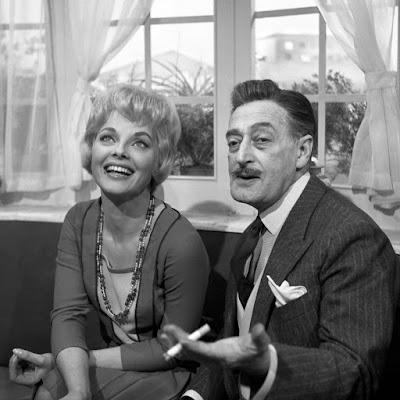








































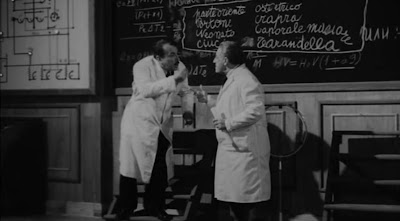










































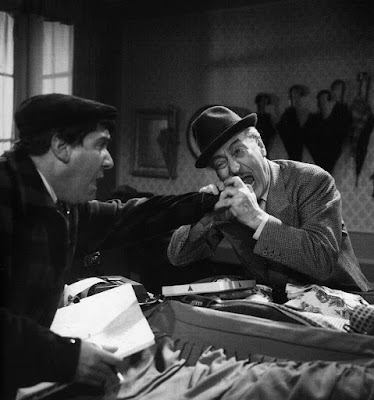










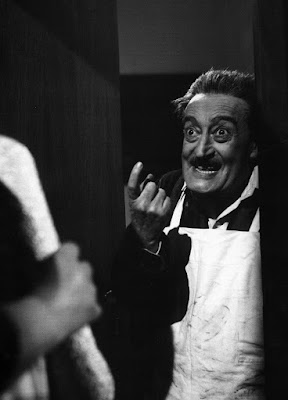



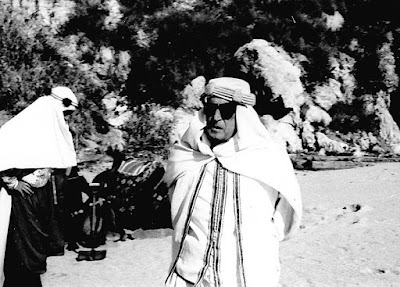






































.jpg)






No comments:
Post a Comment